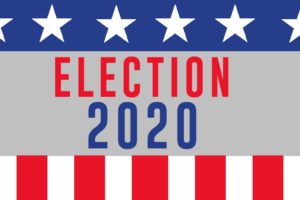I’ve attracted some buzz with my latest articles highlighting many structural challenges preventing the local economy from achieving higher population growth rates, stronger wages, and a balanced expansion that include all races and socio-economic groups.
Thank you for the many calls and messages that I’ve received in response to my commentary – many of you affirmed my diagnosis, others shared great ideas, and while some readers made it clear they did not agree with my assessment and simply thought I was an idiot. Personally I enjoy creating a substantive dialogue that has the potential to shift outcomes.
One elected official attempted to remind me of all the “progress” that we have made in the past couple decades. To which I harken back to the words of Malcolm X, “If you stick a knife in my back nine inches and pull it out six inches, there’s no progress. If you pull it all the way out that’s not progress. Progress is healing the wound that the blow made. And they haven’t even pulled the knife out much less heal the wound.”
We have deeply inflicted economic wounds in our community and the only way to remove many of the disparities that divide large groups of citizens is to focus on healing key areas.
Workforce Development
Winston-Salem was built on the backs of hard working people who invested much of their time in helping manufacturers grow by leaps and bounds – Hanes, RJR, Krispy Kreme, and many others found early success in our community.
As these companies grew and eventually relocated primary operations to foreign and domestic communities, the laborers responsible for their success were forgotten, these people were not retrained for the jobs of the future. Now the high paying jobs in our community are mostly technology based and housed in the same warehouses utilized by the companies of yesterday, but these historical properties have a new brand – Innovation Quarter.
Lab technicians in the quarter earn on average $70,000 annually, but you won’t see many of the poverty stricken locals filling these jobs – they mostly go to individuals migrating to Winston-Salem from California, New York, and all points in between.
Of course we are pleased to welcome all our new neighbors, but we must be careful not to forget those in our community seeking to improve their own quality of life.
We must identify strategic ways to leverage our bustling universities and community college to help local workers obtain the necessary skills to transition into the jobs of today and tomorrow. Free or deeply reduced tuition for residents could be a great step in the right direction.
Entrepreneurship
Not everyone wants to work for a major employer for life – some people have a desire to develop their own workplace, create jobs, and provide opportunities.
However doing so in Winston-Salem can be incredibly frustrating, especially if you don’t possess the important connections to investors and capital. Our community historically is cliquish with many roadblocks and obstacles preventing an entrepreneur from cultivating a good idea.
We somehow must tear down the “good ole boy” network that serves as gatekeepers in Winston-Salem and moreover allow capital, talent, and resources to flow naturally to entrepreneurs with the best and brightest ideas – regardless of race, background, or whether not you graduated from the “right” university.
Economic and Financial Literacy
Knowledge and simple access to information has disunited communities for ages. Some of the richest people in the world only had one advantage – they discovered some information that others largely were unaware of or just ignored. Knowledge is truly power.
One of the best ways to insure balanced growth and diverse wealth is to help undereducated citizens to gain access to vital pieces of knowledge that enables them to make better daily choices and develop positive habits.
In most communities across the nation individuals and families don’t fully understand how their local economy or personal finances may work. So their lack of knowledge leads them to make bad decisions that don’t drive wealth creation. Helping more citizens to have a basic level of economic and financial literacy can position them to make life changes that can have a generational impact.
Transportation
The greatest obstacle to economic mobility is lack of transportation. Access to reliable transportation can not only affect your bank account, but it can also be mentally and emotionally discouraging. Imagine not knowing how you’ll get to work daily, make an important doctor’s appointment, or simply pick-up your children from school – decisions that most of us take for granted, but can provide real barriers to the least of us.
A good friend challenged me to use public transit for a week, I’m sad to admit that I only made it two days, but not all of us have the luxury to jump back in a car as easily as I did.
The current public transportation system is confusing, doesn’t provide enough timely stops, and largely inefficient. We must pressure elected officials to become more innovative with their approach to public transportation while also discovering a funding mechanism that gives residents fare free access.
Regional Cooperation
Mecklenburg, Wake, and Durham counties are growing at unprecedented rates for many reasons – but the primary cause is because they have a regional community vision and all the municipalities are working cohesively to achieve the objective. Unlike Forsyth County where small rural communities don’t play so well with the larger anchor which is Winston-Salem.
Undoubtedly the conservative nature of these smaller communities when it comes to corporate incentives, taxes, and quality of life drive their willingness not to partner with the urban core, but we must somehow find a way to focus more on what unites us while ignoring the minor differences separating us.
All communities in the county must strive to get on the same page and row in the same direction, which largely benefits thousands of residents that mostly ignore the imaginary lines detaching us.



